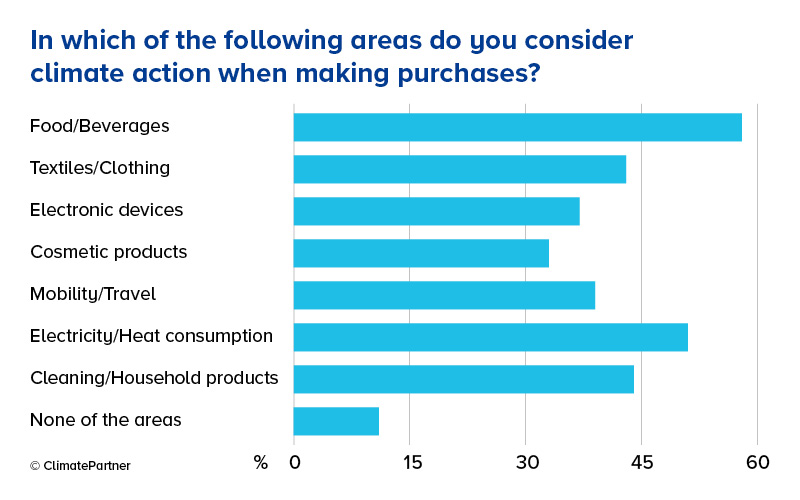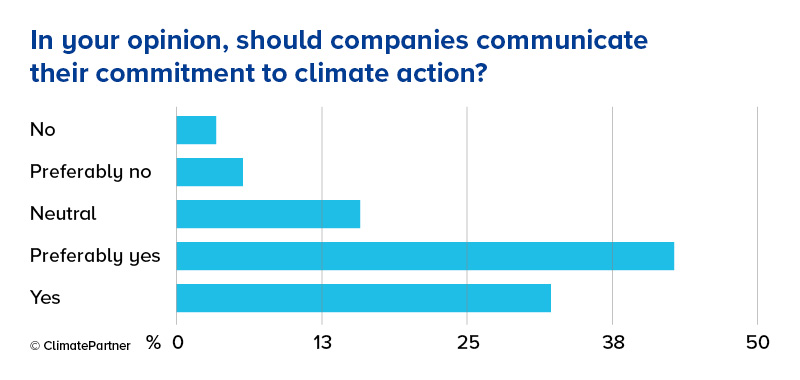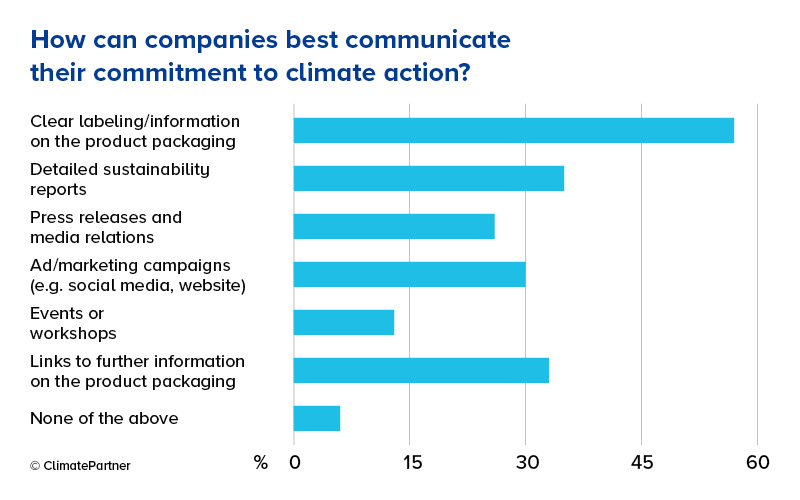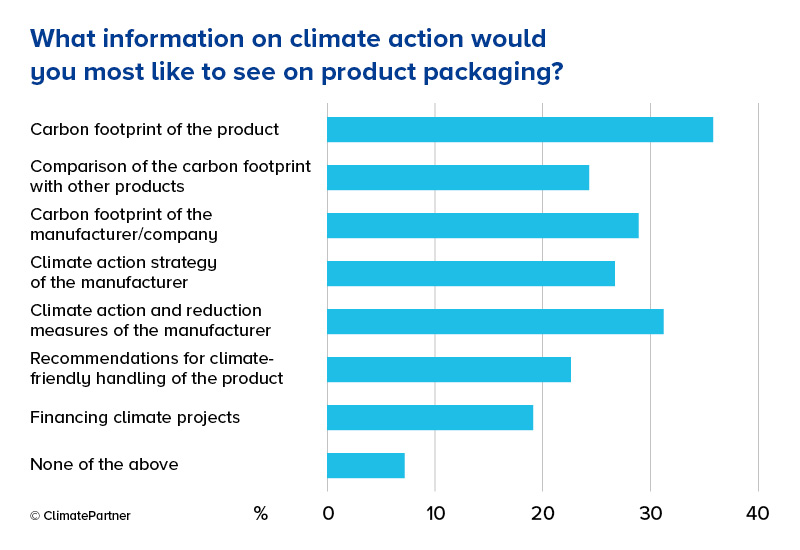Climate action labelling on products: What consumers expect
October 1, 2024
There are good reasons for companies to engage in climate action. In addition to reducing their footprint, they increase their competitiveness and strengthen their brand image while meeting the expectations of employees, investors, and consumers. But how can companies communicate their climate action commitment transparently and credibly? How do consumers perceive information on climate action efforts on products? In collaboration with the market research institute Appinio, we surveyed 2,250 people from Germany, Austria, and Switzerland on this topic. Climate action is a decisive factor in purchasing decisionsIf companies are reluctant to communicate their climate action for fear of being accused of greenwashing, they not only make it difficult for consumers to make informed purchasing decisions but they also miss out on clear market opportunities. The results of our survey show that the way climate action is presented plays an important role when shopping. Almost 60% of respondents said that they pay attention to climate action when buying food and beverages. When it comes to electricity and heat consumption, climate action plays a role for around 52% of respondents. Only 12% said that they do not consider climate action in either area. |
 |
In addition, around 64% of respondents said they would prefer a product if the packaging included information about the manufacturer's commitment to climate action. Clear labelling on product packaging desired75% of respondents are in favour of companies openly communicating their commitment to climate action. |
 |
| The majority of those surveyed also support clear labelling of climate action measures on product packaging. 43% of participants consider certification or labels to be helpful in highlighting the manufacturer's commitment. |
 |
| The survey participants view the carbon footprint as especially helpful: a majority would like to see information on the product's carbon footprint (36%) and the manufacturer's carbon footprint (29%) on the packaging. Consumers are also interested in the company's climate action and reduction measures. |
 |
ClimatePartner labelsThe respondents associated the ClimatePartner labels, ClimatePartner certified product and product with a Financial climate contribution, with keywords such as climate friendliness (40.7%), commitment to climate action (37%), and sustainability (38.2%). For 40.9% of the participants, the labels served as an incentive to buy the product. Competitive advantage through transparent climate action communicationWhen shopping, consumers are looking for sustainable products and want clear and visible information about companies' climate action commitments, for example through certifications, labels, or information on the carbon footprint. The German consumer organisation VERBRAUCHER INITIATIVE e.V. recently conducted a survey that came to similar conclusions, showing that consumers find climate labels helpful. Georg Abel, national managing director of VERBRAUCHER INITIATIVE e.V., said in an interview with ClimatePartner: "Climate action as part of a broader sustainability strategy continues to set companies apart from their competitors. Among other things, fundamental, ambitious corporate goals, the design of the supply chain, the range of goods, and credible communication contribute to this." These results offer useful approaches for companies that want to further expand their sustainability strategy and meet the needs of climate-conscious consumers. If companies communicate their commitment in a comprehensible and transparent way, they will remain competitive and meet the expectations of their customers. Find out how companies can communicate their climate action credibly and transparently as well as which EU legal requirements need to be observed in our free Deep Dive ‘Communicating Climate Action’. |